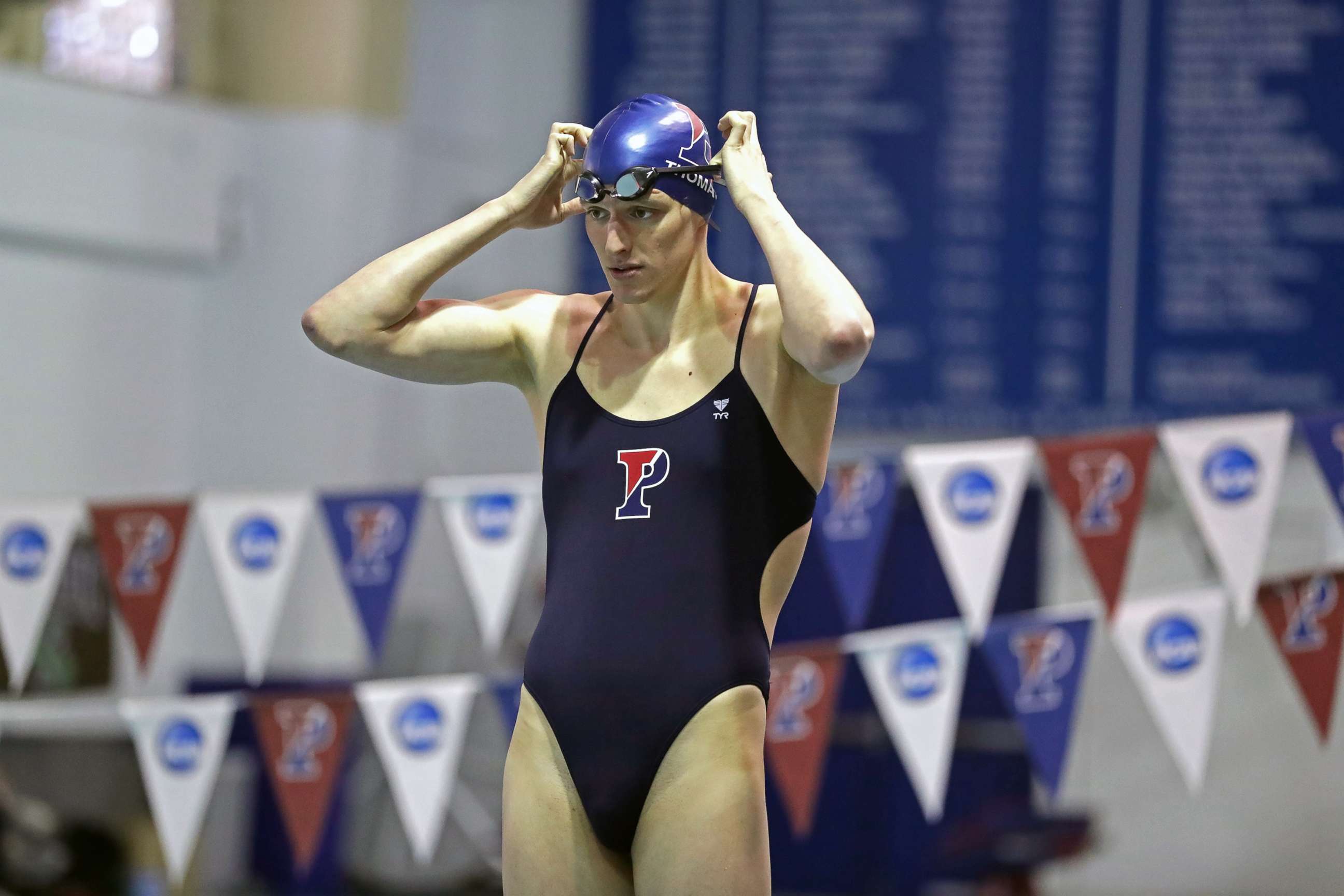Outspoken conservative commentator Candace Owens has reignited the debate surrounding transgender athletes in women’s sports, demanding that swimmer Lia Thomas be banned from competing in female categories.
Owens argues that allowing transgender women to participate in women’s sports undermines fairness and the integrity of female competition. Her bold stance has sparked a heated conversation across social media, dividing public opinion once again.

Owens’ Call for Action
During a recent episode of her podcast, Owens addressed the ongoing controversy over Lia Thomas, a transgender swimmer who has competed in NCAA women’s events. Owens, known for her unapologetic views on cultural and political issues, didn’t hold back in her critique.
“Women have fought for decades to have their own spaces in sports, and now we’re watching that being taken away,” Owens said. “Lia Thomas is not a woman in the biological sense, and allowing someone like her to compete against biological females is unfair.”
Owens further argued that the inclusion of transgender athletes in women’s sports is detrimental to female athletes who have worked tirelessly to compete on a level playing field. She called on governing bodies to take immediate action to preserve the integrity of women’s sports.
“If we don’t stand up now, we’ll see the end of women’s sports as we know it. It’s time for policies that protect female athletes from unfair competition,” Owens added.
Lia Thomas and the Ongoing Debate
Lia Thomas became a polarizing figure in 2022 after becoming the first transgender woman to win an NCAA Division I swimming championship. Her victory sparked widespread debates over whether transgender athletes should be allowed to compete in women’s sports.
Supporters of Thomas argue that transgender women have the right to compete in categories that align with their gender identity, pointing to the importance of inclusivity in sports.
However, critics like Owens believe that biological differences between men and women give transgender women an unfair advantage in competition, especially in strength-based sports.
The debate isn’t just about swimming. Across various sports, including track and field, cycling, and weightlifting, the participation of transgender athletes has been met with both support and backlash.
The International Olympic Committee (IOC) and other governing bodies have struggled to create policies that balance inclusivity with fairness.

A Divided Public Reaction
Owens’ comments have sparked fierce reactions online, with supporters praising her for defending female athletes and critics accusing her of promoting exclusion and intolerance.
One Twitter user wrote:
“Candace Owens is right. Women deserve fair competition, and allowing Lia Thomas to compete is a slap in the face to every female athlete who trained for years.”
However, others were quick to push back:
“Owens’ rhetoric is harmful. Transgender athletes deserve respect and inclusion. This isn’t about fairness; it’s about human rights.”
The divide reflects a broader societal debate about gender identity, fairness, and inclusion in sports — a debate that shows no signs of slowing down.
Policy Changes on the Horizon?
Several sports organizations have already begun revising their policies on transgender athletes. In June 2022, FINA, the international swimming federation, voted to restrict transgender women from competing in elite women’s events unless they transitioned before the age of 12.
Other organizations, including World Athletics and the International Cycling Union, have also implemented stricter rules regarding transgender participation in women’s categories.
However, Owens believes these measures don’t go far enough.
“It’s not about when someone transitions; it’s about biology. We need to stop pretending that science doesn’t matter in sports,” she said.

What’s Next for Women’s Sports?
The future of women’s sports hangs in the balance as organizations, athletes, and fans grapple with how to address the inclusion of transgender athletes.
Owens’ comments have added more fuel to an already heated debate, and it’s likely that governing bodies will face increasing pressure to clarify their policies.
For Owens, the answer is clear:
“We need to stand up for women’s rights in sports. It’s not about hate or exclusion — it’s about fairness. Female athletes deserve better.”
As the discussion continues, one thing is certain — the conversation around fairness, gender identity, and inclusion in sports is far from over.
News
Un padre regresa del ejército y descubre que su hijastra ha sido obligada por su madrastra a hacer las tareas del hogar hasta sangrar, y el final deja horrorizada a la madrastra.
Después de dos años lejos de casa, tras días abrasadores y noches frías en el campo de batalla, el Capitán…
Una niña de 12 años hambrienta pidió tocar el piano a cambio de comida, y lo que sucedió después dejó a todos los millonarios en la sala asombrados.
Una niña de doce años hambrienta preguntó: “¿Puedo tocar el piano a cambio de algo de comida?” Lo que sucedió…
Se rieron de ella por almorzar con el conserje pobre, pero luego descubrieron que él era el director ejecutivo de la empresa.
Se rieron de ella por compartir el almuerzo con el conserje pobre, hasta que descubrieron que él era el director…
La multimillonaria soltera se arrodilló para pedirle matrimonio a un hombre sin hogar, pero lo que él exigió dejó a todos conmocionados.
“Por favor, cásate conmigo”, suplicó una madre soltera multimillonaria a un hombre sin hogar. Lo que él pidió a cambio…
Nadie se atrevía a salvar al hijo del millonario, hasta que apareció una madre pobre sosteniendo a su bebé y una acción temeraria hizo llorar a todos.
Nadie se atrevía a salvar al hijo del millonario, hasta que una madre negra y pobre que sostenía a su…
Un maestro escuchó el aterrador susurro de un niño y los descubrimientos de la policía dejaron a todos sorprendidos.
Un Maestro Escuchó a un Niño Susurrar “Esta Noche Me Voy a Escapar Antes de Que Él Me Encuentre” y…
End of content
No more pages to load












